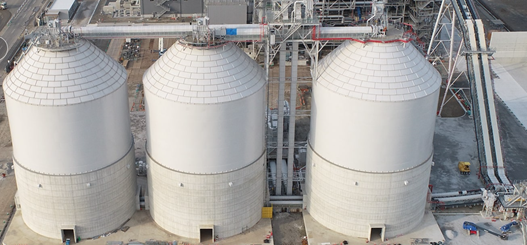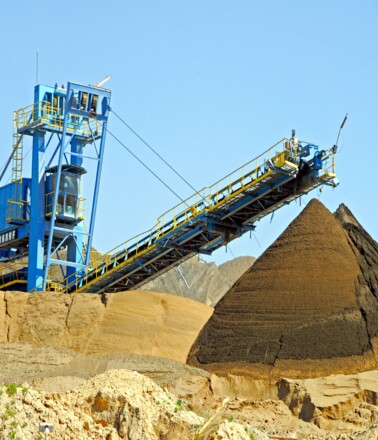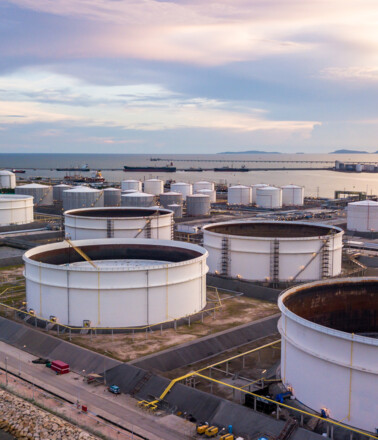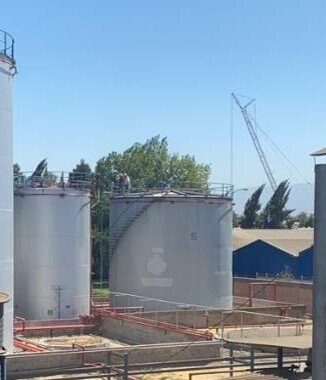Kanda Biomass Energy K.K, - A Japanese renewable energy company selected a Distributed Temperature Sensing (DTS) system developed by NK Systems Limited and AP Sensing GmbH in a newly constructed biomass power plan in Kyushu District, Japan.
Biomass power generation uses biological materials as fuel to generate electricity. Wood chips from unused timber or forest residue, as well as wood pellets and palm kernel shells (PKS), are used as biomass fuel. Through photosynthesis, plants absorb carbon dioxide (CO2) from the air and utilize it for plant growth. Consequently, power generation fueled by biomass is regarded as carbon neutral as it only releases carbon dioxide that was absorbed during plant growth. Using biomass fuels as an alternative to fossil fuels enables the reduction of CO2 emissions during power generation, contributing to the prevention of global warming.
However, wood chips are apt to change into dust and extremely flammable. When wood chips stick to moving part of conveyors, they may cause fire. To prevent this, continuous monitoring along the entire conveyor of biomass fuels is necessary.
NK Systems / AP Sensing’s Distributed Temperature Sensing (DTS ) system has the following features to help fire prevention efforts:
- One continuous sensor, monitoring a 4 km conveyor for 24 hours / 365 days a year
- Pinpoints temperature measurements for rotors as well as conveyor-side atmosphere
- Original graphic display shows real-time temperature, indicating physical location of conveyors
- Historical temperature trace data
- Maximum reliability under harsh and industrial conditions (heat, dirt, dust, corrosion)
- Inherently safe in explosive environments
- Immune to electromagnetic interference (EMI or RFI)
- Low maintenance
- Integrates easily into existing fire detection systems or fire control panel (FACP)
- Wide range of certifications
After evaluating these features, Kanda Biomass Energy selected the NK Systems / AP Sensing solution.




